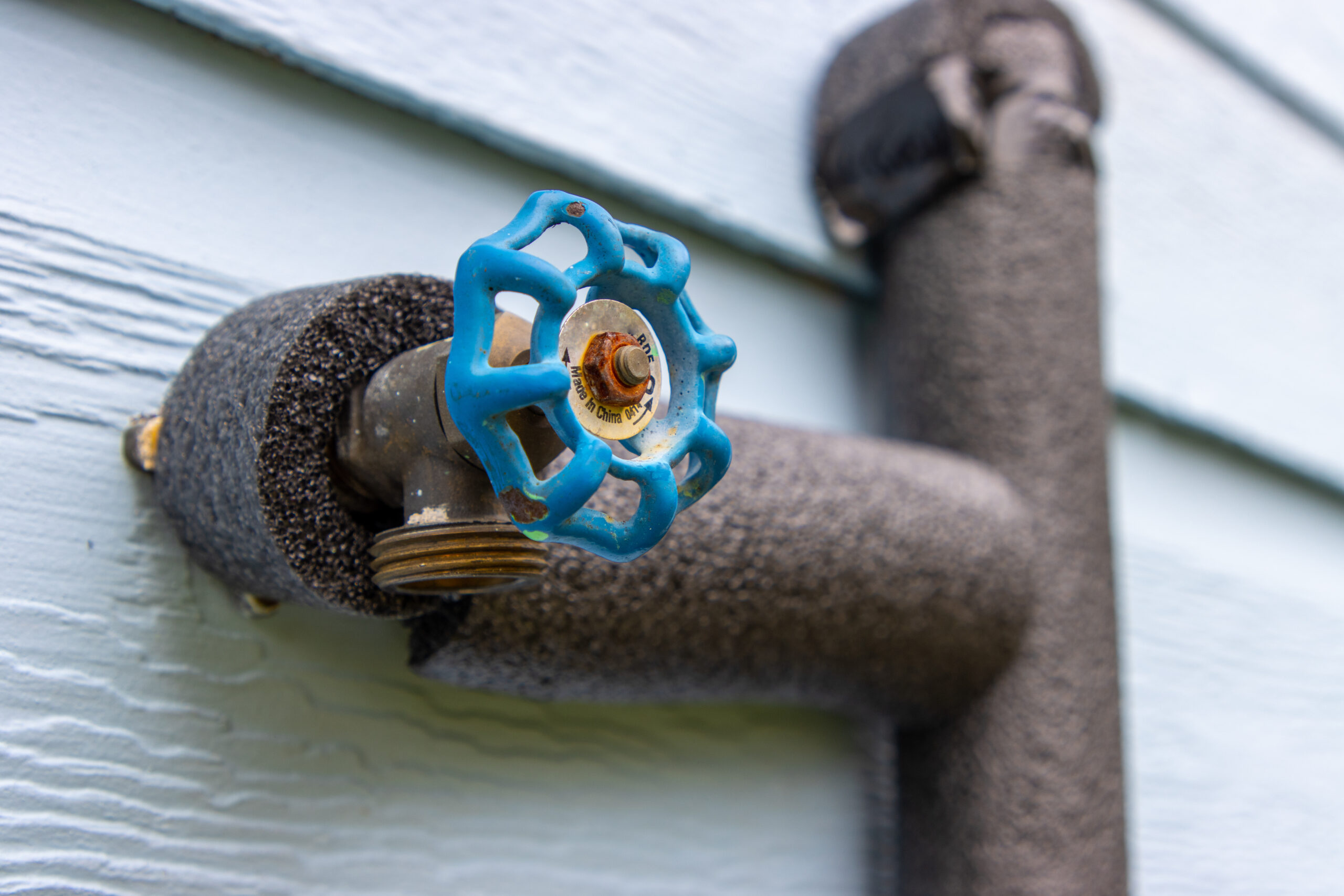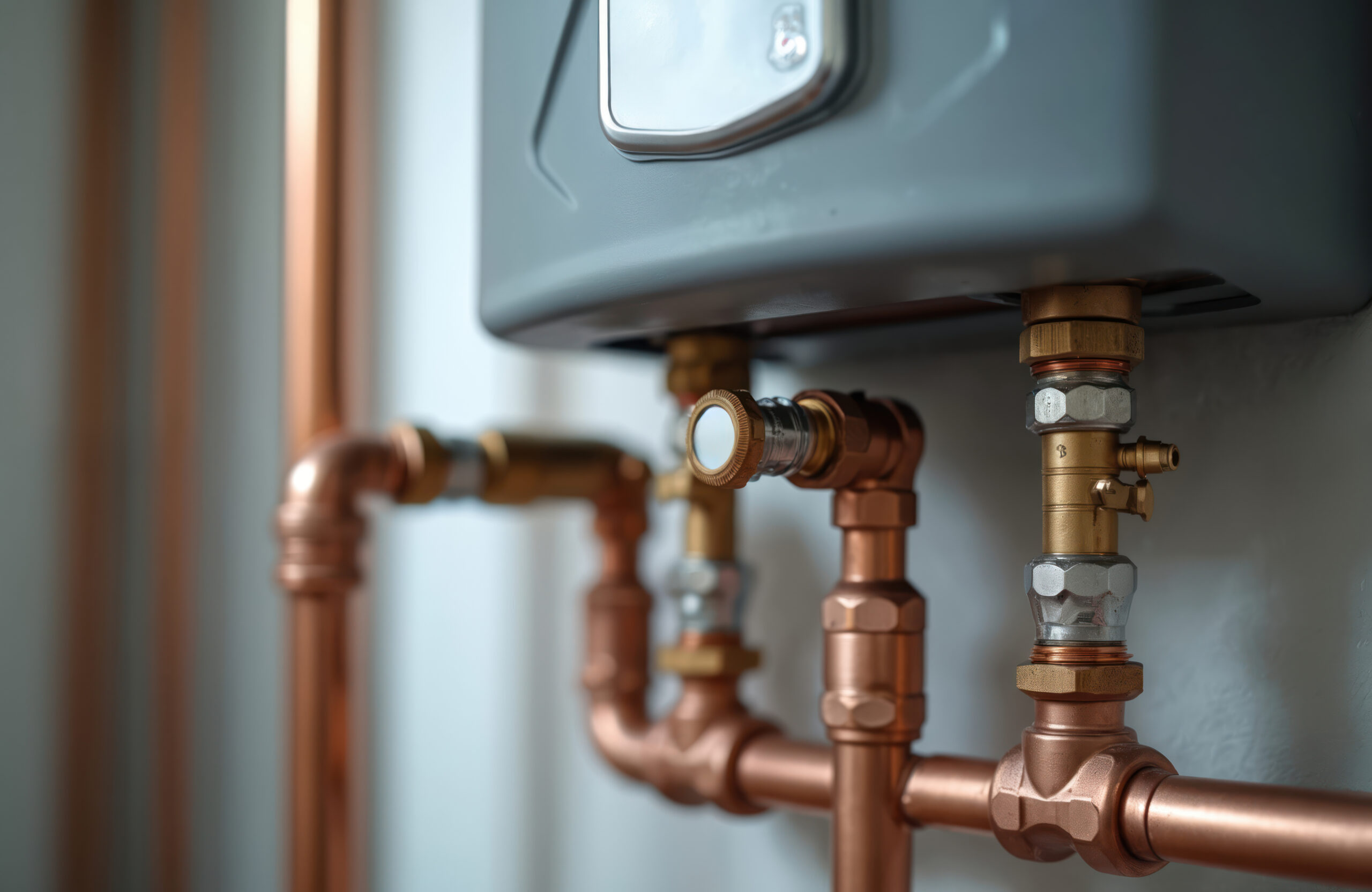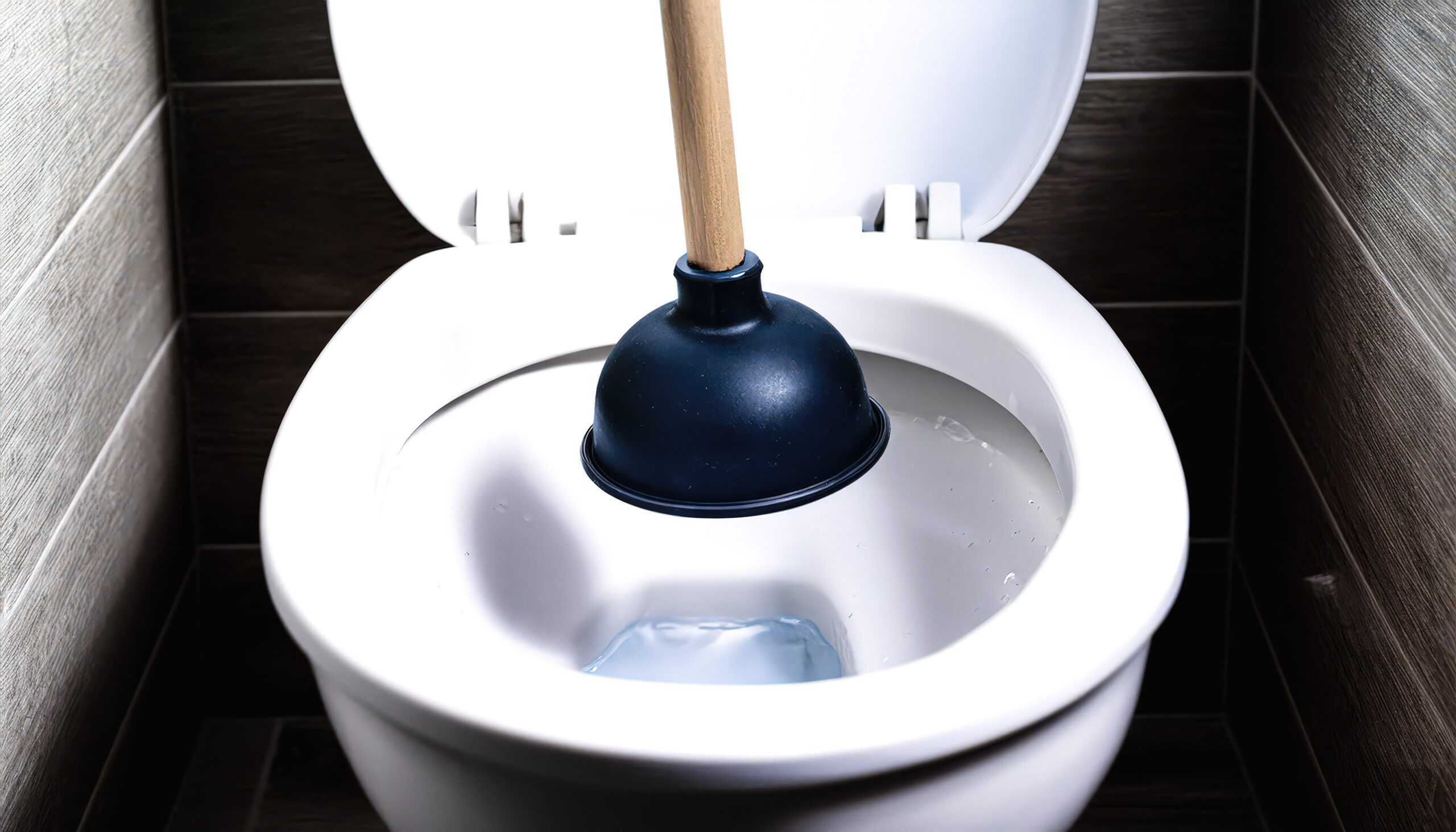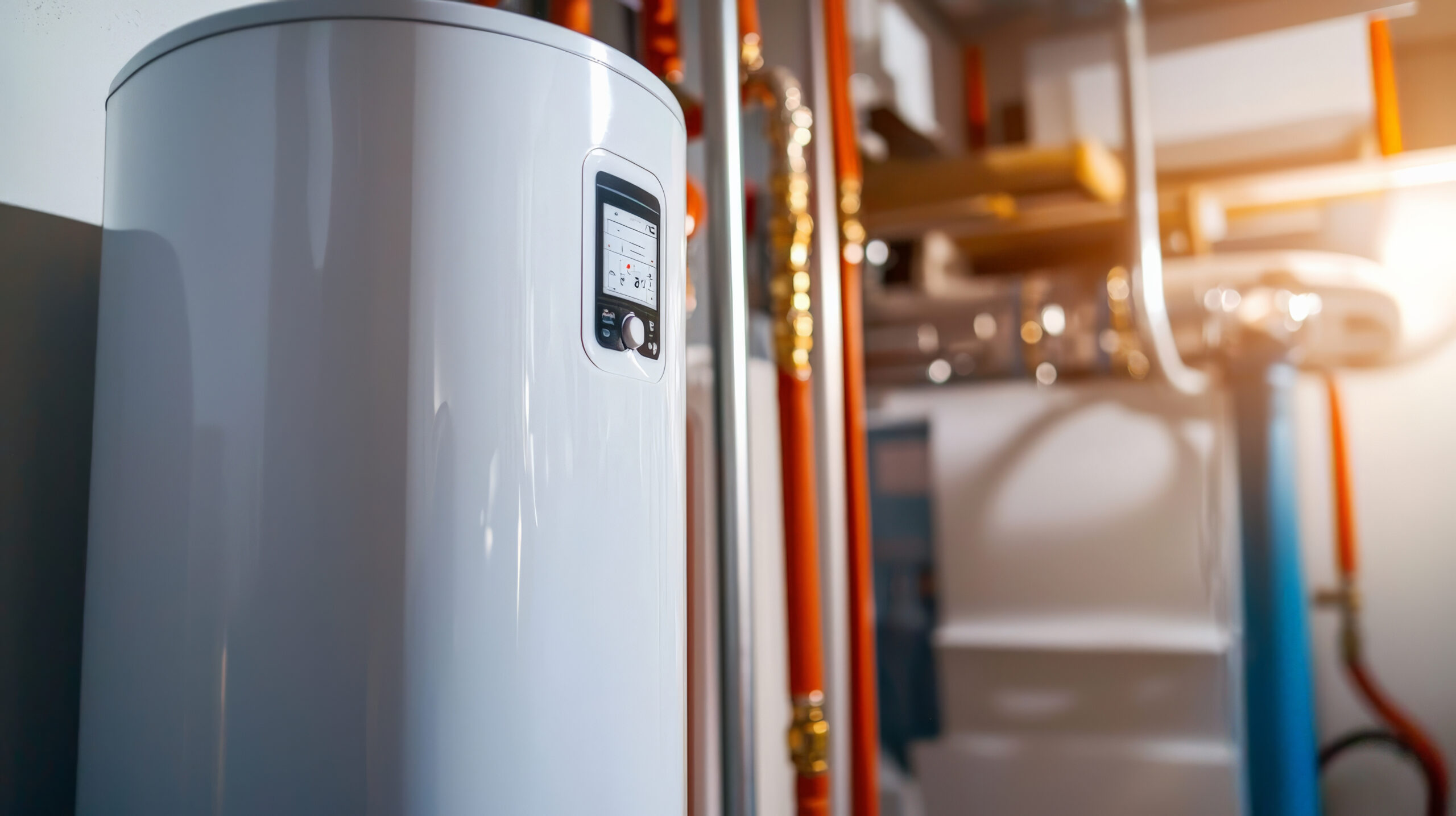|
Getting your Trinity Audio player ready...
|
Last Revised: 7/14/25
You might never see your home’s main water line, but it’s an essential part of your everyday life. Everything from showers, sinks, and toilets to washing machines and dishwashers rely on clean water delivered to your home.
So when something goes wrong with yours, it’s natural to wonder: Does the problem call for a full replacement – or is a repair enough to get it working again?
At Mattioni, we’ve been helping homeowners protect their plumbing systems for over 75 years. We know that your main water line is one of the most critical – and overlooked – plumbing components. When it fails, it can disrupt your entire home, damage your property, and cost far more than expected if left unaddressed.
In this article, we’ll walk you through what causes main water line failure, how to recognize the warning signs, and how to know when replacement is the smart solution. You’ll also get a clear, step-by-step plan for what to do if you suspect a problem.
Let’s take a closer look.
What Is a Main Water Line – and Why Does it Matter?
Your main water line is the underground pipe that brings fresh, clean water from the municipal system – or your private well – into your home. It typically enters through your foundation or basement and connects to the internal plumbing that supplies every fixture in the house.
It’s your home’s water gateway. And if it’s working properly, everything in your home flows as it should. But if it’s leaking, blocked, or deteriorating, your whole plumbing system suffers. Because it’s buried under the surface, problems often go unnoticed until they’ve already caused significant damage.
While main water lines are built to last decades, their lifespan isn’t infinite – and some factors can even cause sudden failure.
Signs Your Main Water Line May Be Failing
Main water line issues often start small – but ignoring the early signs can lead to major consequences. Here’s what to watch for around your home.
1. A Whole-House Water Pressure Drop
If you notice a significant decrease in water pressure at multiple fixtures, it’s rarely a coincidence. A clog, leak, or break in your main water line can reduce pressure throughout the house, not just in one location.
2. Spiking Water Bills Without Increased Use
A hidden underground leak can waste hundreds of gallons per day. If your water bill has jumped and you haven’t changed your usage, your main water line might be leaking where you can’t see it.
3. Soggy or Unusually Green Patches in Your Yard
A common clue (that’s often missed) is overly lush grass or soggy soil in one area of your yard – especially if it hasn’t rained in a while. This often indicates a slow leak underground that’s saturating the soil near the pipe.
4. Rusty or Cloudy Tap Water
Discoloration in your water can signal that contaminants are entering through cracks or corrosion in the pipe. If it appears across multiple taps, it likely originates in the main line.
5. Unexplained Water Sounds
If you hear water moving behind walls or in the basement when nothing is running, it may be escaping through a leak in your main supply line.
6. Foundation Damage or Basement Moisture
Persistent leaks near the foundation can erode soil and destabilize your home’s structure. If you see new cracks or unexplained basement moisture, don’t overlook the main line as a possible cause.
What Causes Main Water Line Failure?
Main water lines are built to be durable – but they aren’t indestructible. These are the most common causes of failure:
1. Outdated Pipe Materials
Older pipes made from galvanized steel, iron, or lead are more susceptible to corrosion and decay. Homes built before the 1970s may still have these materials in place, which are far more prone to failure than modern options like copper or PEX.
2. Invasive Tree Roots
Tree roots are drawn to moisture – so even a small crack in your main water line can turn it into a giant underground watering can. Roots will find it, infiltrate it, and expand inside the pipe. This inevitably leads to major blockages or complete ruptures over time.
3. Ground Movement and Soil Shifting
Whether from natural settling, construction, or freeze-thaw cycles, shifting ground can stress pipes and create cracks or disconnections. This is especially dangerous for poorly installed lines.
4. Excess Water Pressure
When there’s too much pressure within your plumbing system, it puts extra strain on joints, seals, and the main supply pipe itself. Over time, this can lead to splits, bursts, or long-term weakening of the main line.
5. Poor Installation Practices
If your line wasn’t sloped properly when it was installed (or if substandard materials were used), it can lead to loose joints and is more likely to fail early. Even a newer home can have trouble if the original work wasn’t up to code or properly executed.
6. Soil Chemistry and External Corrosion
Soil with high acidity or high mineral content can corrode the pipe from the outside in. This process is slow (and invisible), but it often continues until an unnoticed rupture occurs.
When to Repair vs. When to Replace
When you need to make the call between repair and replacement, you must factor in the severity, location, cause of the issue, and overall condition of your main water line. Here’s how to think about it:
- Repair may be the right decision if the problem is localized (like a single crack or joint failure), the majority of the pipe material is in good shape and it’s stable.
- Replacement is likely the better choice if the pipe is old, corroded, or made from outdated materials – and/or multiple issues are developing along its length.
It’s always advisable to meet with a professional plumber (or two) to evaluate your main water line’s condition and have a conversation about the pros and cons of your options before making a final decision.
Understanding Your Replacement Options
Many homeowners fear that replacing a main water line means tearing up the entire yard, driveway, or landscaping. And conventional water line replacement does involve open trench excavation, which can be invasive, time-consuming, and costly to restore.
Trenchless water line replacement, however, uses techniques like directional boring and pipe pulling to achieve the following:
- Create a new path for your water line with minimal surface disruption
- Pull a new, durable pipe through the existing line – eliminating the need for full excavation
- Complete most replacements faster and with less mess than traditional dig-and-replace work
This means less damage to your yard, shorter project timelines, and a cleaner, more efficient solution – without sacrificing quality or durability. While trenchless methods may not be suitable in every case (such as when severe pipe collapse or underground obstructions are present), your technician will be able to assess and recommend the best option for your property.
What to Do If You Suspect a Problem
If something feels off – low pressure, a soggy yard, unexplained water bills, etc. – don’t wait. Follow these simple steps:
1. Confirm the Symptoms
Check multiple fixtures, inspect your yard, and compare recent water bills. If symptoms are widespread or worsening, it’s likely a main line issue.
2. Rule Out Interior Leaks
Shut off all water-based appliances and check your meter. If it’s still moving, you almost certainly have a leak somewhere – potentially in your main water line.
3. Shut Off Water In Emergencies
If flooding is active or damage is visible, turn off your home’s main water shut-off valve and call a professional immediately.
4. Schedule A Professional Inspection
Professional plumbers (like the ones at Mattioni) can provide a detailed inspection to identify the extent of the issue. This step is critical towards finding answers to your questions and scoping out your options.
5. Weigh Repair vs. Replacement
Don’t underestimate the importance of becoming educated before you make a final call. If your pipe is structurally sound, a targeted repair may be enough, but there are pros and cons to that. Replacement will ensure your home is protected for the long haul, but there are pros and cons to that as well. A candid conversation with a trusted expert is the best bet to make the right call for your home.
A Proactive vs. Reactive Approach to Home Utility Projects
It shouldn’t come as a surprise that ignoring the symptoms of plumbing issues can lead to more significant problems down the road. Brushing off a sudden jump in your water bill, for instance, can lead to a minor leak turning into a complete pipe collapse that requires extensive (and costly) repairs.
Calling a professional at the first sign of problems is usually the most cost-effective decision in the long run. Main water line problems can be quiet at first – but they don’t stay that way.
Final Takeaways: Don’t Wait for Water Line Failure to Catch You Off Guard
Your main water line is out of sight, but it shouldn’t be out of mind. Knowing what causes failure – and when to replace instead of repair – can save you hundreds on your water bill and thousands in property damage.
At Mattioni, we bring over 75 years of trusted service to every inspection, repair, and replacement. We use the latest technology to diagnose plumbing problems and communicate clearly with you as you choose what’s right for you and your home.
If you’re seeing the warning signs of a main water line issue, don’t make the mistake of waiting for the problem to get worse. Call us at (610) 400-8510 or schedule a main water line evaluation online now, and protect your home from costly surprises down the line.




